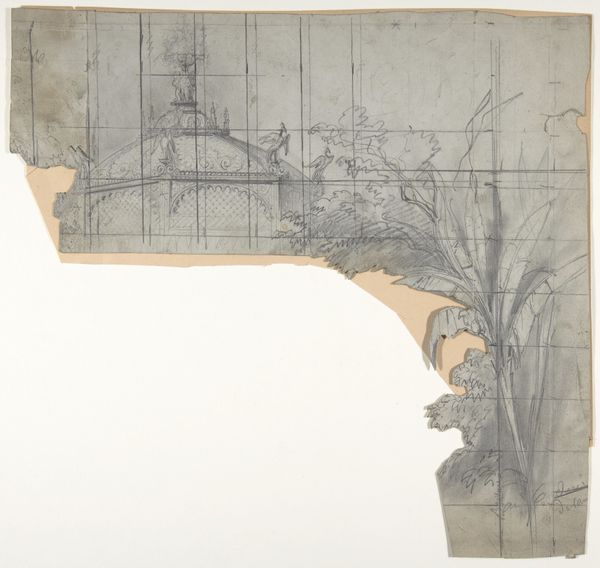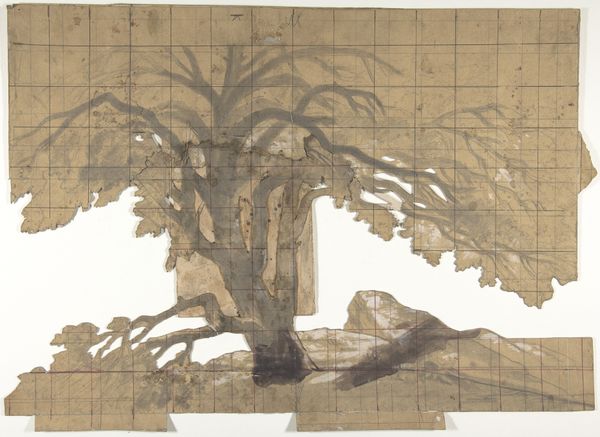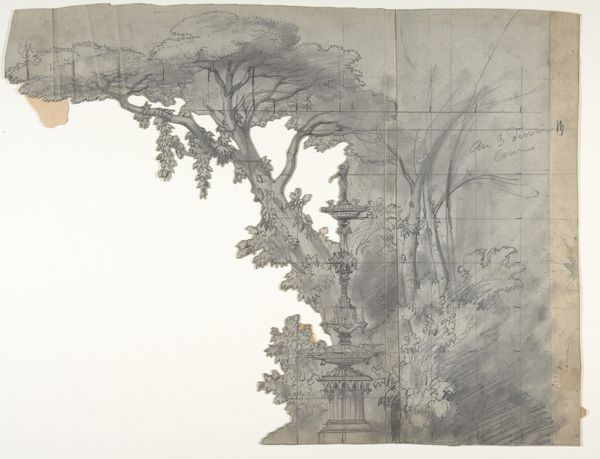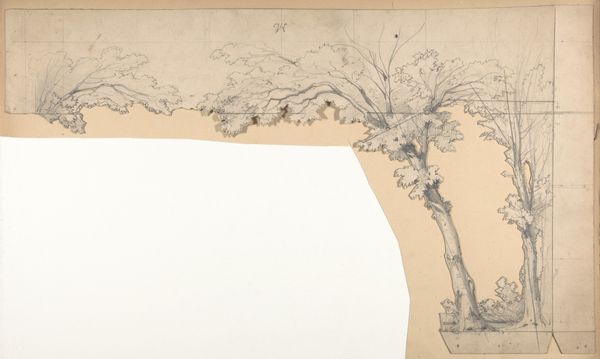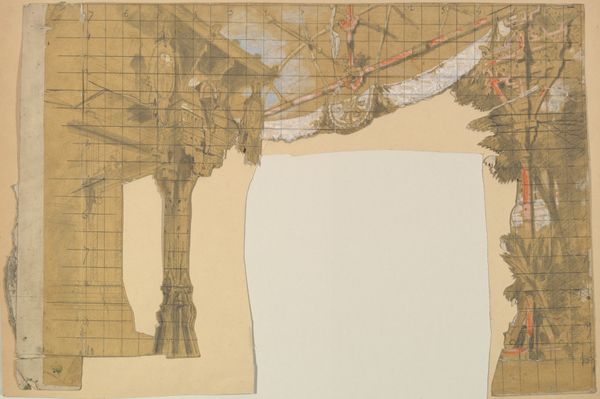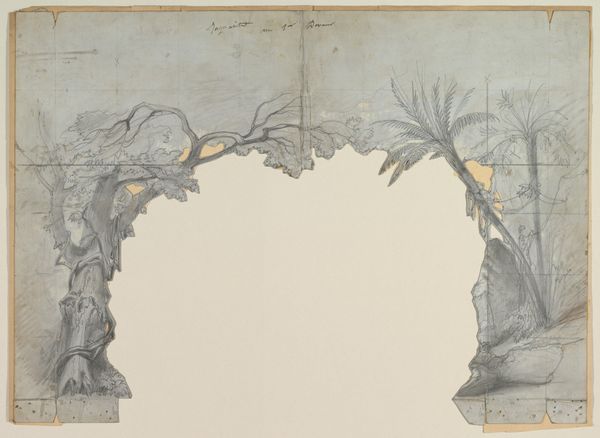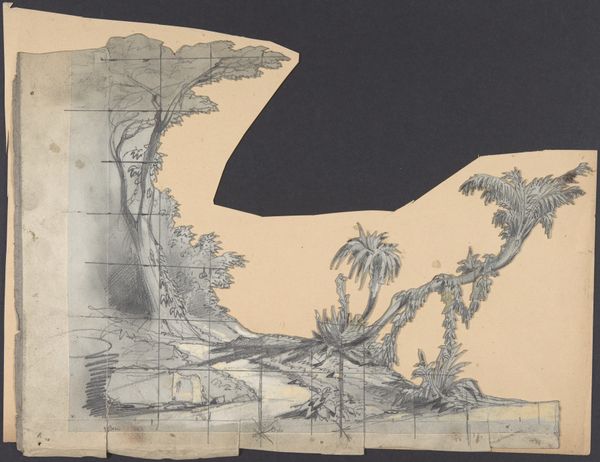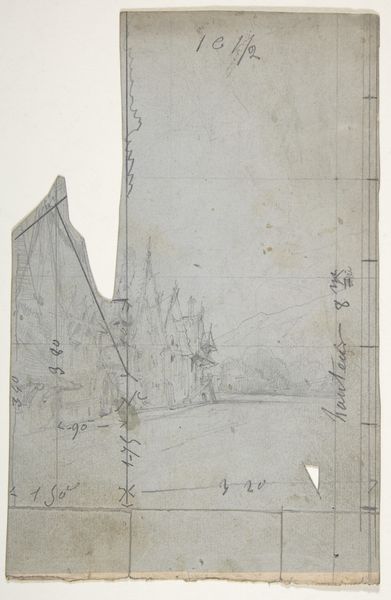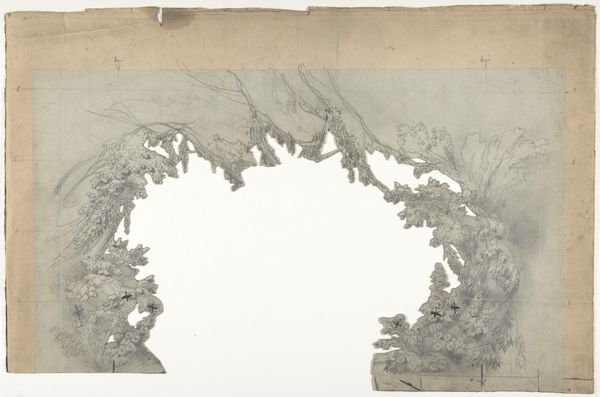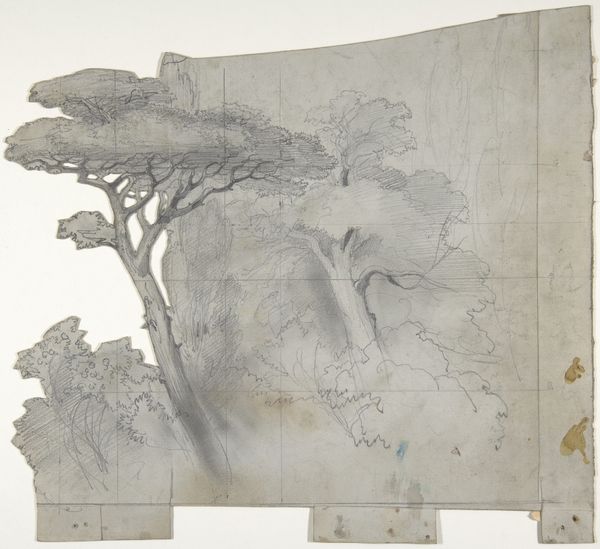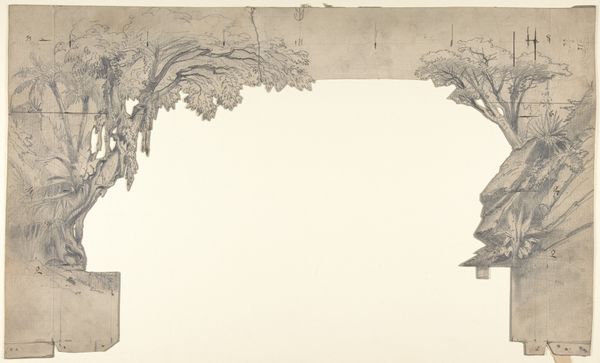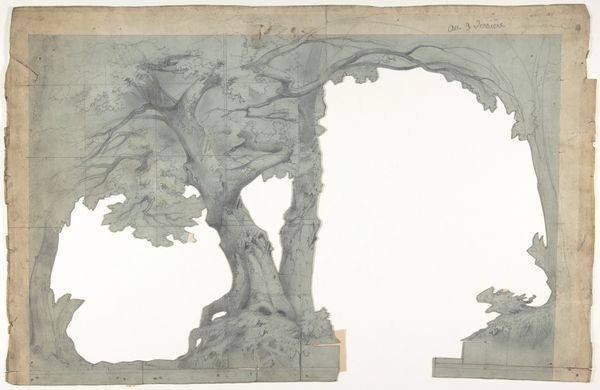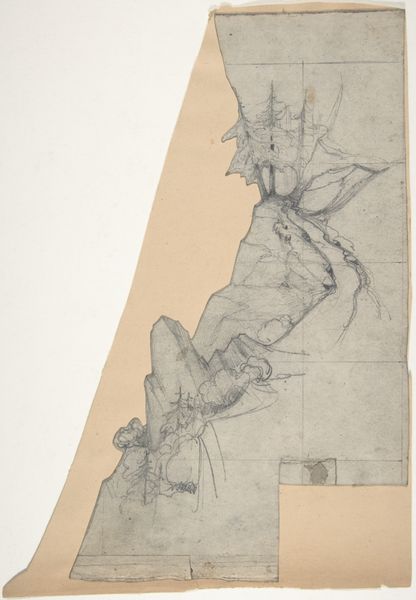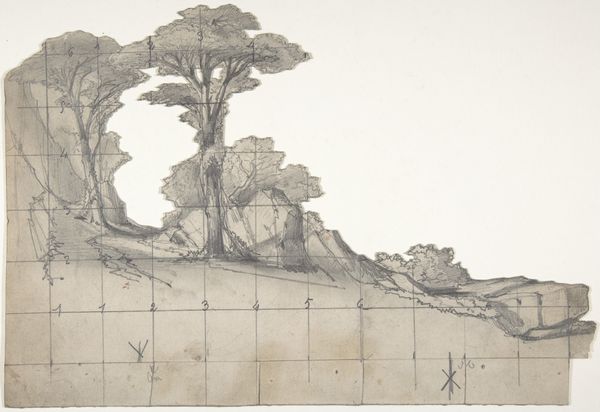
Design for a Stage Set at the Opéra, Paris 1840 - 1890
0:00
0:00
drawing, print, paper, pencil
#
tree
#
drawing
# print
#
landscape
#
etching
#
paper
#
pencil
Dimensions: Irregular sheet: 10 x 13 1/8 in. (25.4 x 33.3 cm)
Copyright: Public Domain
Curator: What a fascinating drawing, a stage set design for the Opera in Paris created by Eugène Cicéri sometime between 1840 and 1890. It's rendered in pencil, etching, and print on paper. Editor: It's lovely. The starkness of the etched tree against what I imagine would be a colorful backdrop is striking. It's as if the tree is the central figure, the protagonist even, in this theatrical landscape. What do you see in this piece? Curator: Beyond the obvious, a majestic tree taking center stage, it makes me think about how constructed and controlled even our visions of nature were, and still are, particularly within elite cultural institutions like the Opéra. Editor: Could you elaborate? Curator: Think about the power dynamics at play. This isn't just a drawing of a tree, it is a carefully orchestrated design. Cicéri, as a designer, dictated what nature *should* look like for the audience. The Opera, an institution associated with the upper class, then presented that image to be consumed. How might ideas about race or class shape how a designer conceptualizes a landscape? What were they trying to evoke? A sense of order, perhaps dominance? The stage is quite literally set to make a certain point. Editor: That’s a perspective I hadn't considered. So, you're saying that even a seemingly innocent landscape design can be interpreted as reflecting underlying social and political power structures. Curator: Precisely! Art is never created in a vacuum. Even a tree on a stage carries cultural weight. And the opera itself played a crucial role in shaping societal norms. Editor: This has completely changed how I see the artwork. It's not just a stage design, it's a reflection of societal values. Curator: And that's the beauty of engaging with art, isn't it? To continuously question what we think we know, to consider alternative perspectives.
Comments
No comments
Be the first to comment and join the conversation on the ultimate creative platform.
